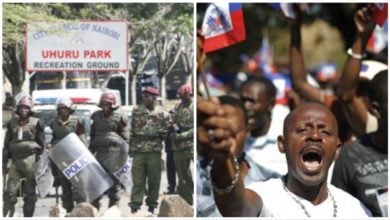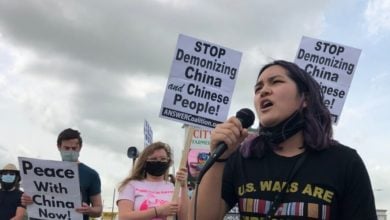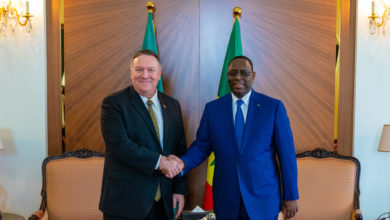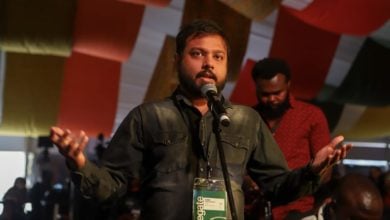On July 15, arch-conservative presidential candidate Sen. Marco Rubio, a Florida Republican, will preside over a meeting of the U.S. Senate Foreign Relations Subcommittee on Western Hemisphere, Transnational Crime, Civilian Security, Democracy, Human Rights, and Global Women’s Issues.
The hearing, which will be held at 2:30 p.m. in the Dirksen Senate Office Building in Room SD-419, is entitled an “Overview of U.S. Policy Towards Haiti Prior To the Elections,” and the principal witness will be Thomas C. Adams, the U.S. State Department’s Special Coordinator For Haiti.
Sen. Marco Rubio has already tacked on an amendment to the Assessing Progress in Haiti Act (APHA) of 2014, which now requires the State Department to provide “a description of any attempts to disqualify candidates for political office in Haiti for political reasons.”
Rubio’s amendment stems from concern in many U.S. government quarters about the disqualification last month by the Provisional Electoral Council (CEP) of former Haitian Prime Minister Laurent Lamothe, whom the U.S. views as an ally in rebellious Haiti.
James Morrell, the executive director of the Haiti Democracy Project (HDP), applauded Rubio’s amendment in an open letter where he decried the “exclusion of certain high-profile candidates who eschew violence, but seem to belong to the wrong political faction.” Morrell also lamented “the Haitian electoral commission’s inclusion of more than thirty-five notorious criminals as candidates for president, senate and lower house in Haiti, in violation of Haiti’s electoral law.” Morrell then calls on the U.S. government “to press the [CEP] for a reversal of [its] decisions,” a blatant violation of Haitian sovereignty.
The HDP was the principal Washington lobbyist and information clearing house for the political forces which supported the bloody Feb. 29, 2004, coup d’état against former President Jean-Bertrand Aristide, so one can easily devine whom Morrell views as “criminal” (i.e., coup victims and opponents) and who he thinks would “eschew violence” (i.e. coup supporters).
Stanley Lucas is another coup supporter and HDP associate who is a member of Lamothe’s team. He, along with former Lamothe minister Ralph Théano, apparently registered Lamothe as a presidential candidate for the Peasant’s Platform (Platform Peyizan) without the candidate’s consent, according to a purported phone conversation by Lamothe released on the Internet. Lucas gained national and international prominence in the years leading up to the 2004 coup as a zealous representative of the International Republican Institute (IRI), an arm of the U.S. government’s National Endowment for Democracy (NED), which advances Washington’s interests by meddling in the internal political affairs of countries around the world. Lucas was fired from IRI when he overstepped his paygrade by bad-mouthing and undermining then U.S. Ambassador to Haiti Brian Dean Curran.
Another Republican operative in Lamothe’s retinue is former IRI political consultant Damian Merlo, who left Haiti with the former prime minister when he resigned in the face of massive demonstrations in December 2014. In Haiti’s 2011 election, Merlo worked for the Spanish marketing firm Ostos & Sola, which was hired by Lamothe, the long-time business partner of then-candidate Michel Martelly. Prior to becoming the Martelly campaign’s point-man, Merlo worked on the presidential campaign of U.S. Republican John McCain, who headed IRI.
So, once again, Haiti is inserting itself into the U.S. presidential race, just as it did in 1992 (Clinton vs. Bush I). Republican candidates like Sen. Rubio, with IRI agents like Lucas and Merlo working with Lamothe, can be expected to needle Thomas Adams about whether the Democratic Obama administration is being “forceful” enough in protecting U.S. interests (and candidates) in Haiti, just as they are challenging Obama’s policies with respect to Cuba, Iran, and ISIS.
As we reported a few weeks ago, Damian Merlo has already complained that the Obama administration “cannot just stand on the sidelines and claim this is a ‘Haitian issue.’” He asserted that elections will not be “free and fair … if Lamothe is left out of race, and U.S. interests are also at stake.”
This will undoubtedly be the line of attack of Sen. Marco Rubio on July 15, as he tries to portray the Obama administrations as too “soft” and “weak” and seeks to muscle into Haiti’s sovereign electoral affairs.






